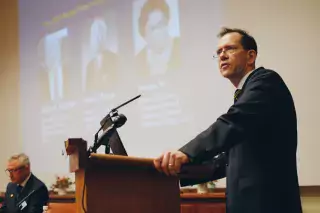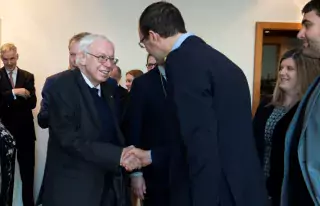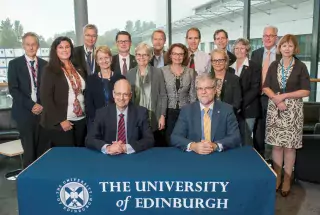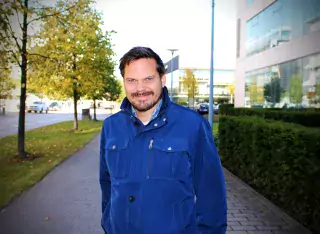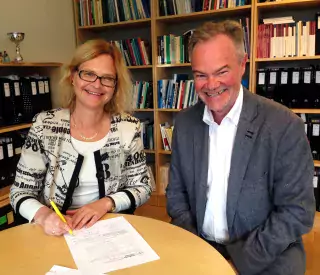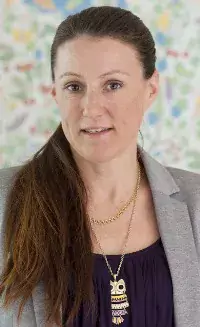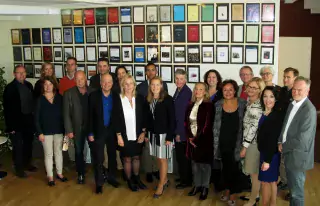News archive
On this page you can search for older news. Choose a topic, type of news or enter your own keyword to filter out news.
View compact
Karin Loré, Professor of Vaccination Immunology specialising in Innate Immunity at the Department of Medicine, Solna, studies how the immune system responds to vaccination and how protective responses to infectious diseases are established. In particular, she focuses on how immune-stimulating substances – vaccine adjuvants – can induce stronger responses which is important for the development of vaccines to infections like hiv/aids and malaria.
News
Should we avoid fatty fish because it contains PCB – or eat it because it contains omega-3? Agneta Åkesson, Professor of Epidemiology specialising in Nutrition and Toxicology at the Institute of Environmental Medicine, combines several research fields in order to piece together a picture of how factors such as diet and lifestyle affect our health.
News
Single cell analysis enables scientists to do what was once thought impossible: study gene activity in an individual cell. Sten Linnarsson, Professor of Molecular System Biology specialising in Transcriptomics at the Department of Medical Biochemistry and Biophysics, uses the technique to identify cell types in the brain and to understand the systems that regulate our cells types in both healthy and cancerous tissue.
News
Janne Lehtiö, Professor of Medical Proteomics at the Department of Oncology-Pathology, uses mass spectrometry to study proteomes and their function to understand how proteins change as cancer develops. One of his objectives is to find reliable biomarkers that can help doctors to choose the most effective medication for each patient.
News
Yvonne Wengström, Professor of Nursing at the Department of Neurobiology, Care Sciences and Society, researches how care can support patients’ symptom burden and well-being during treatment for cancer; this she does in dialogue with the patients themselves.
News
As a doctoral student, Per Uhlén, Professor of Dynamic Imaging of Intracellular Signalling at the Department of Medical Biochemistry and Biophysics, discovered that the calcium concentration in cells can fluctuate at a certain frequency, roughly like a radio signal. He is now trying to understand the meaning of these signals for the healthy and diseased body.
News
Myocardial infarction in people with healthy coronary arteries is far more common than once thought. Much remains unknown about the causes, diagnosis and treatment of these infarctions, but Per Tornvall, Professor of Cardiology at the Department of Clinical Research and Education, Södersjukhuset hopes to put this right.
News
Carol Tishelman is an experienced KI professor although she has been recently appointed as Professor of Innovative Care at the Department of Learning, Informatics, Management and Ethics, with a newly established professorial chair funded by an endowment. She is active in research into how people experience sickness and health care – at present focusing particularly on end-of-life care.
News
In a newly published study, researchers at Karolinska Institutet show that the shortening of the telomeres – the caps at each end of the chromosomes in our cells – can be linked statistically to the active mechanism responsible for Alzheimer’s disease.
News
Sten Eirik Waelgaard Jacobsen, Professor of Stem Cell Biology and Regenerative Medicine at the Department of Medicine, Huddinge, and the Department of Cell and Molecular Biology, researches how bone marrow stem cells produce blood cells. His research involves exploring the mechanisms and regulation of healthy blood formation and the causes of diseases of the blood, such as leukaemia.
News
Gert Helgesson, Professor of Medical Ethics at the Department of Learning, Informatics, Management and Ethics, researches scientific and medical ethics. The issues he interrogates concern everything from how researchers present their data to the difficult decisions doctors must make on life and death.
News
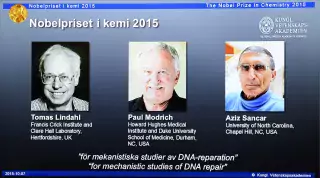
The 2015 Nobel Prize in Chemistry has been awarded Tomas Lindahl, Paul Modrich and Aziz Sancar for having mapped, at a molecular level, how cells repair damaged DNA and safeguard the genetic information. Tomas Lindahl made these crucial discoveries, for which he is now being rewarded, at Karolinska Institutet.
News
